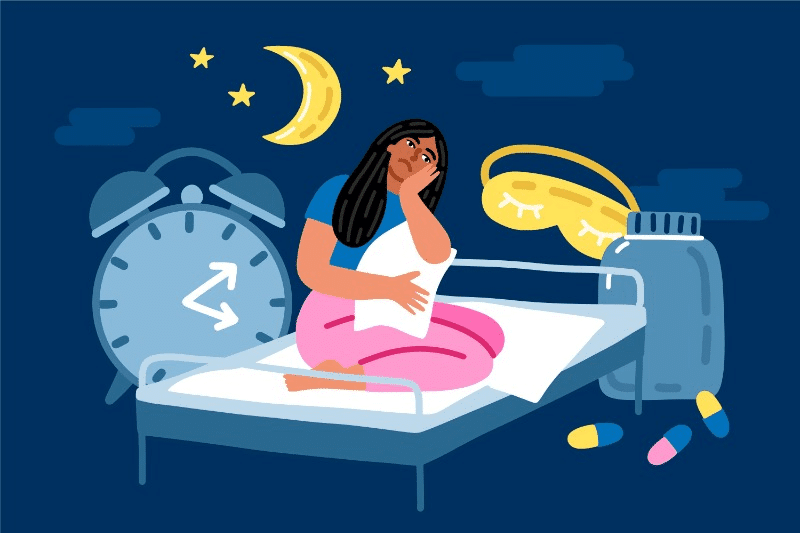Key Takeaways
- When considering l-theanine supplementation and anxiety relief, it’s recommended to start with a dosage of 200-400mg per day, which can be adjusted based on individual response and consultation with a healthcare professional.
- Anxiety and Stress Relief: L-theanine has shown promising benefits in reducing anxiety and stress levels, with a recommended dosage of 200-400mg per day for these purposes.
- For improving sleep disorders and anxiety relief, a dosage of 200-400mg of l-theanine before bedtime may help promote relaxation, improve sleep quality, and reduce insomnia scores.
- Enhanced Focus: L-theanine dosage of 100-200mg can aid in enhancing focus and attention, especially when combined with caffeine.
- Safety Considerations: While l-theanine is generally well-tolerated, it’s important to be mindful of potential interactions with caffeine and to adhere to recommended dosages for safety.
- Consultation with Healthcare Provider: Before initiating l-theanine supplementation, it’s advisable to consult with a healthcare provider to determine the appropriate dosage and ensure it aligns with individual health needs and goals.
L-Theanine and Its Dosage
Individual Needs
The dosage of
L-Theanine varies based on individual needs. Factors such as
body weight, metabolism, and the desired effect are crucial in determining the appropriate dosage. It’s important to consider one’s body and health condition when deciding on the right amount.
L-Theanine is commonly used as a dietary supplement, often taken to promote relaxation, reduce stress, and improve focus. For some patients, a lower dose might be sufficient to experience these benefits, while others may require a higher oral administration of the supplement to achieve the same effects.
Considering that L-Theanine is an amino acid found in tea leaves, those who regularly consume green or black tea may already get a certain level of this compound through their daily beverage consumption. Additional supplementation with L-theanine and caffeine should be carefully evaluated based on individual requirements and existing intake levels.
What Are the Recommended Dosages of L-Theanine for Athletes?
For athletes, the recommended dosage for L-theanine can vary. Generally, a dose of 200-400 mg per day is recommended for promoting relaxation and focus without causing drowsiness. However, individual needs may vary, so it’s important to consult with a healthcare professional to determine the optimal dosage for athletes.
Consultation with Healthcare Provider
Before starting any new supplementation regimen or altering current dosages, it’s essential to consult with a healthcare provider. A professional can provide personalized recommendations based on an individual’s specific health status and potential interactions with other medications or supplements being taken concurrently.
- The dosages of L-Theanine and caffeine vary based on individual needs.
- Consider factors like metabolism and desired effects when determining the appropriate dose.
- Regular tea drinkers should evaluate if additional caffeine supplementation is necessary.
- Always consult with a healthcare provider before starting any new supplementation regimen.
Clinical Overview of L-Theanine
Potential Health Benefits
Research suggests that l-theanine dosage, caffeine, and study may have potential health benefits. Studies have shown positive effects on mental alertness. For example, a systematic review of controlled clinical trials found that l-theanine and caffeine can significantly improve cognitive function and reduce stress levels.
L-theanine has been the subject of numerous clinical trials exploring its impact on stress, cognitive function, and caffeine. These studies provide valuable insights into the potential benefits of l-theanine supplementation. It’s important to note that these studies are high-quality, controlled trials, providing reliable data on the effects of l-theanine.
Mental Alertness and Relaxation

One key area where l-theanine has demonstrated its efficacy is in promoting mental alertness while inducing a sense of relaxation. This unique combination makes it an attractive option for individuals seeking improved cognitive performance without experiencing the jittery side effects often associated with stimulants like caffeine.
In addition to enhancing mental clarity and focus, l-theanine’s calming properties make it a popular choice for managing stress and anxiety naturally. The ability to achieve a state of relaxation without sedation sets l-theanine apart as a versatile supplement for supporting overall well-being.
L-Theanine Dosing Guidelines
Recommended Dosage
The
recommended dosage of L-Theanine typically ranges from 100-400 mg daily. It is often taken in one or two divided doses. For example, some individuals may take a 200 mg dose once daily, while others may prefer to split the total amount into two 100 mg doses throughout the day.
L-Theanine’s versatility allows for flexible dosing based on individual needs and preferences. Some people find that a lower dose (mg) provides the desired effects, while others may require a higher dosage (mg) to achieve similar results. Therefore, it’s essential to consider individual tolerance and response when determining the appropriate
dose.
Individual Tolerance and Response
When deciding on an appropriate
dosage, it’s crucial to consider individual tolerance and response. Factors such as body weight, metabolism, overall health condition, and sensitivity to supplements can influence how someone responds to L-theanine.
For example, if you’re small, you might need less medicine than someone bigger. And if you’re sensitive to medicine, it’s better to start with a small amount and then increase it slowly.
Benefits of L-Theanine for Anxiety and Stress Relief
Anxiety Relief
Taking the right amount of l-theanine can help you relax and reduce anxiety without making you feel sleepy. It’s a good option for people with anxiety disorder. It may also help lower blood pressure and decrease the stress hormone cortisol.
Health Benefits
When considering the suitable l-theanine dosage in mg, individuals should consider their specific needs and consult healthcare professionals if necessary. It’s important to note that while some studies suggest l-theanine could enhance the effects of anti-anxiety medications, there is still ongoing research in this area.
The potential health benefits of l-theanine extend beyond anxiety relief; it includes promoting relaxation and improving cognitive function. When used responsibly within recommended dosages, l-theanine offers a natural alternative for managing anxiety symptoms and enhancing overall well-being.
Impact of L-Theanine on Sleep Disorders
Improved Sleep Quality
Some studies say L-theanine can help you sleep better. If you have trouble sleeping, using L-theanine might make your sleep better. This could help you feel more rested and awake in the morning.
The calming effects of L-theanine are believed to play a significant role in enhancing objective sleep quality. This includes factors such as reduced nighttime awakenings and increased deep sleep stages during the night. L-Theanine could address some underlying issues contributing to poor sleep patterns by promoting deeper and more restorative slumber.
Reduced Insomnia Symptoms

Moreover, studies indicate that L-theanine might help reduce symptoms associated with insomnia (et al). Individuals struggling with insomnia often face challenges related to falling asleep or staying asleep throughout the night. The introduction of L-Theanine, known for its relaxation-inducing properties, could aid in minimizing these difficulties by fostering a state of calmness conducive to falling asleep more easily.
Incorporating this natural supplement into one’s daily routine may positively influence subjective reports and objective measures like decreased latency to fall asleep and improved overall insomnia scores.
Enhanced Focus with L-Theanine Consumption
Complementing Caffeine
Consuming
L-theanine alongside caffeine can be beneficial. Combining these two substances has been linked to
improved attention and sustained focus. For individuals who are sensitive to the jitters caused by caffeine intake, incorporating L-Theanine into their supplementation routine may help mitigate this side effect while still promoting heightened alertness.
Some studies have shown that the subjective alertness experienced after taking L-theanine in combination with caffeine is greater than when either substance is consumed alone. This means that the synergistic effects of these compounds could lead to enhanced cognitive performance without the typical restlessness associated with high doses of caffeine.
Individual Reports
Many individuals have reported experiencing increased concentration and improved attention tasks after using L-theanine supplements. While scientific research on this topic is ongoing, users’ anecdotal evidence suggests that regular L-Theanine consumption has positively impacted their ability to maintain focus during activities requiring sustained attention.
Some people find that combining a specific dosage of L-Theanine with their morning coffee or energy drink provides them with a noticeable improvement in mental clarity throughout the day.
Adverse Reactions and Safety Profile of L-Theanine
Rare Adverse Effects
L-Theanine is generally well-tolerated, with minimal adverse reactions reported. However, in some cases, individuals may experience rare
adverse effects such as headaches or dizziness after consuming l-theanine. These occurrences are infrequent but should be noted as potential side effects.
Consumers who notice unusual symptoms after taking l-theanine should consider consulting a healthcare professional for guidance. While these adverse effects are uncommon, addressing them promptly is essential to ensure the individual’s well-being.
Consultation with Healthcare Professional
For individuals with pre-existing conditions or those who are on medication, seeking advice from a healthcare professional before starting an l-theanine regimen is advisable. This precautionary measure can help identify any potential interactions between l-theanine and existing medications or health issues.
Consumers must communicate openly with their healthcare provider about their intention to incorporate l-theanine into their routine. This transparency allows the healthcare professional to offer personalized recommendations based on the individual’s health status and medical history.
L-Theanine in Mental Health Treatment
Potential Mental Health Benefits
L-theanine supplementation has garnered increasing interest for its potential to support mental well-being. Studies have explored
theanine works in managing symptoms of depression and schizophrenia, indicating promising results. Incorporating theanine supplementation may provide complementary benefits for individuals undergoing conventional treatments for these conditions.
Research has shown that combining L-theanine with antipsychotic medication or antidepressants could potentially enhance the overall treatment outcomes for patients. By integrating this amino acid into their drug administration regimen, individuals may experience improved mental health effects when compared to those who solely rely on standard medications.
The use of
theanine is not limited to mental health alone; it also shows promise in supporting other aspects of well-being. For instance, studies suggest it might help alleviate anxiety and stress by promoting a sense of calmness without causing drowsiness. This makes it an appealing option for individuals seeking natural remedies to manage their mental state.
Considerations for Dosage
When considering
theanine dosage, it’s crucial to consult a healthcare professional, especially if the individual is already taking other medications like chemotherapy drugs or antipsychotics. The appropriate dosage can vary based on age, overall health status, and any existing medical conditions.
It’s important to note that while research indicates positive outcomes from using
theanine, ongoing studies are still exploring its full potential in different areas of health and wellness.
Pharmacological Uses and Health Effects of L-Theanine
Neuroprotective Effects
L-Theanine, apart from its calming properties, exhibits
neuroprotective effects. This means that it can protect nerve cells from damage and degeneration. L-Theanine can potentially safeguard the brain from various forms of harm, contributing to overall cognitive health.
Studies exploring the pharmacological actions of L-theanine have revealed its potential to support cardiovascular health and immune function. For instance, research suggests that it may help reduce stroke risk and improve heart health. L-Theanine’s role in boosting immune function highlights its broader impact on overall well-being beyond mental health.
Antioxidant Qualities
One significant aspect of l-theanine is its antioxidant qualities. It has been found to help combat oxidative stress by neutralizing harmful free radicals in the body. Epigallocatechin
gallate (EGCG) – a compound also found in
green tea – further enhances these antioxidant properties.
In addition to these benefits, studies have also explored the potential antitumor activity of l-theanine and its protective effect on various organs within the body.
Balancing Benefits and Risks of L-Theanine Use
Efficacy
L-theanine has been studied for its
efficacy in reducing stress and anxiety. Research suggests that a dosage of 200-400 mg per day can help alleviate these symptoms. In a pilot study, participants experienced reduced anxiety levels after taking 200 mg of l-theanine.
L-Theanine can be used as an
adjunctive treatment alongside traditional medications for anxiety and stress management. For individuals experiencing symptoms of anxiety, a daily dosage of 200 mg has shown to be effective when used in conjunction with other treatments.
Crossover Trial
In a
crossover trial, participants were given varying dosages of l-theanine to measure its impact on stress levels. The results indicated that a dosage of 250 mg led to significant reductions in stress and anxiety compared to a placebo. This demonstrates the potential benefits of l-theanine at specific dosages.
L-Theanine’s efficacy in managing stress and anxiety symptoms has been supported by research, making it a promising option for individuals seeking natural remedies. However, consulting with a healthcare professional before starting any new supplement regimen is essential.
Frequently Asked Questions
How much L-Theanine should I take for anxiety and stress relief?
The typical dosage of L-Theanine for anxiety and stress relief is 200-400 mg per day. Start with a lower dose and gradually increase, if needed, while monitoring your body’s response.
Is it safe to consume L-Theanine to improve focus and concentration?
Yes, L-theanine is generally safe for enhancing focus and concentration. A 100-200 mg dosage can help improve cognitive function without causing drowsiness or other adverse effects.
What are the potential adverse reactions of L-Theanine?
Adverse reactions to L-Theanine are rare but may include headaches, dizziness, or gastrointestinal discomfort. It’s important to start with a low dose and monitor how your body responds before increasing the intake.
Can I take L-Theanine if I have sleep disorders?
L-Theanine can be beneficial for sleep disorders as it promotes relaxation without sedation. A 200-400 mg dosage taken around an hour before bedtime may help improve sleep quality and reduce insomnia symptoms.
Are there any specific dosing guidelines when using L-theanine in mental health treatment?
When using L-theanine in mental health treatment, it’s advisable to consult a healthcare professional for personalized guidance on dosage. Generally, doses ranging from 200-600 mg per day have been used in clinical studies for various mental health conditions such as depression or schizophrenia.
 One key area where l-theanine has demonstrated its efficacy is in promoting mental alertness while inducing a sense of relaxation. This unique combination makes it an attractive option for individuals seeking improved cognitive performance without experiencing the jittery side effects often associated with stimulants like caffeine.
In addition to enhancing mental clarity and focus, l-theanine’s calming properties make it a popular choice for managing stress and anxiety naturally. The ability to achieve a state of relaxation without sedation sets l-theanine apart as a versatile supplement for supporting overall well-being.
One key area where l-theanine has demonstrated its efficacy is in promoting mental alertness while inducing a sense of relaxation. This unique combination makes it an attractive option for individuals seeking improved cognitive performance without experiencing the jittery side effects often associated with stimulants like caffeine.
In addition to enhancing mental clarity and focus, l-theanine’s calming properties make it a popular choice for managing stress and anxiety naturally. The ability to achieve a state of relaxation without sedation sets l-theanine apart as a versatile supplement for supporting overall well-being.
 Moreover, studies indicate that L-theanine might help reduce symptoms associated with insomnia (et al). Individuals struggling with insomnia often face challenges related to falling asleep or staying asleep throughout the night. The introduction of L-Theanine, known for its relaxation-inducing properties, could aid in minimizing these difficulties by fostering a state of calmness conducive to falling asleep more easily.
Incorporating this natural supplement into one’s daily routine may positively influence subjective reports and objective measures like decreased latency to fall asleep and improved overall insomnia scores.
Moreover, studies indicate that L-theanine might help reduce symptoms associated with insomnia (et al). Individuals struggling with insomnia often face challenges related to falling asleep or staying asleep throughout the night. The introduction of L-Theanine, known for its relaxation-inducing properties, could aid in minimizing these difficulties by fostering a state of calmness conducive to falling asleep more easily.
Incorporating this natural supplement into one’s daily routine may positively influence subjective reports and objective measures like decreased latency to fall asleep and improved overall insomnia scores.

